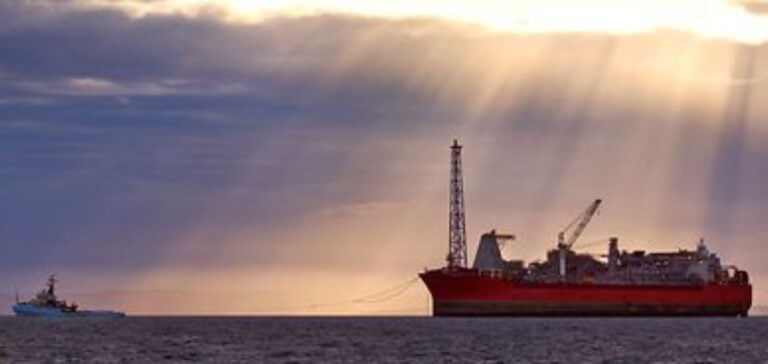TotalEnergies has officially launched the Kaminho oil project, located 100 km off the Angolan coast. The project, in partnership with Petronas (40%) and Sonangol (20%), is scheduled to produce 70,000 barrels of oil a day from 2028. The investment, valued at $6 billion according to Bloomberg, marks a significant development in the Kwanza basin and more widely throughoutAngola, following the country’s withdrawal from OPEC (Organization of the Petroleum Exporting Countries) earlier this month.
Objectives and technological innovations
The Kaminho project involves the conversion of a VLCC tanker into an FPSO. This is a floating production, storage and offloading unit that will be connected to a system of subsea wells at a depth of 1,700 m. This floating, all-electric unit is designed to minimize greenhouse gas emissions and eliminate routine flaring. The associated gas will be reinjected into the reservoir, underlining TotalEnergies’ commitment to more sustainable practices.
Local commitments and partnerships
At a meeting in Luanda, Patrick Pouyanné, CEO of TotalEnergies, met Angolan President João Lourenço and the CEOs of partner companies ANPG and Sonangol. Diamantino de Azevedo, Angolan Minister of Mining, Oil and Gas, emphasized the importance of the contracts signed with local companies, guaranteeing over 10 million man-hours of work for local content.
Economic and strategic implications
The Kaminho project represents the first major deepwater development in the Kwanza basin. It is also the seventh FPSO operated by TotalEnergies in Angola, consolidating the company’s strategic position in the region. This initiative could strengthen economic relations between Angola and international oil companies, while stimulating the local economy through job creation and investment in infrastructure.
The launch of the Kaminho project by TotalEnergies and its partners marks an important milestone in the development of Angola’s oil sector. The emphasis on sustainable technologies and the commitment to local content underline a balanced approach between economic progress and environmental responsibility.





















